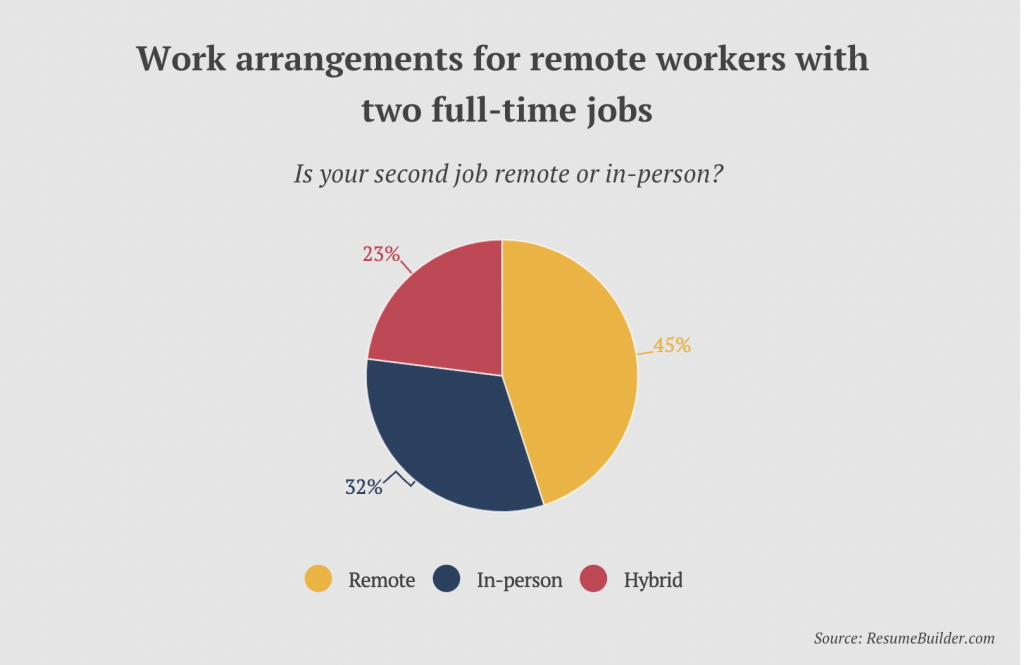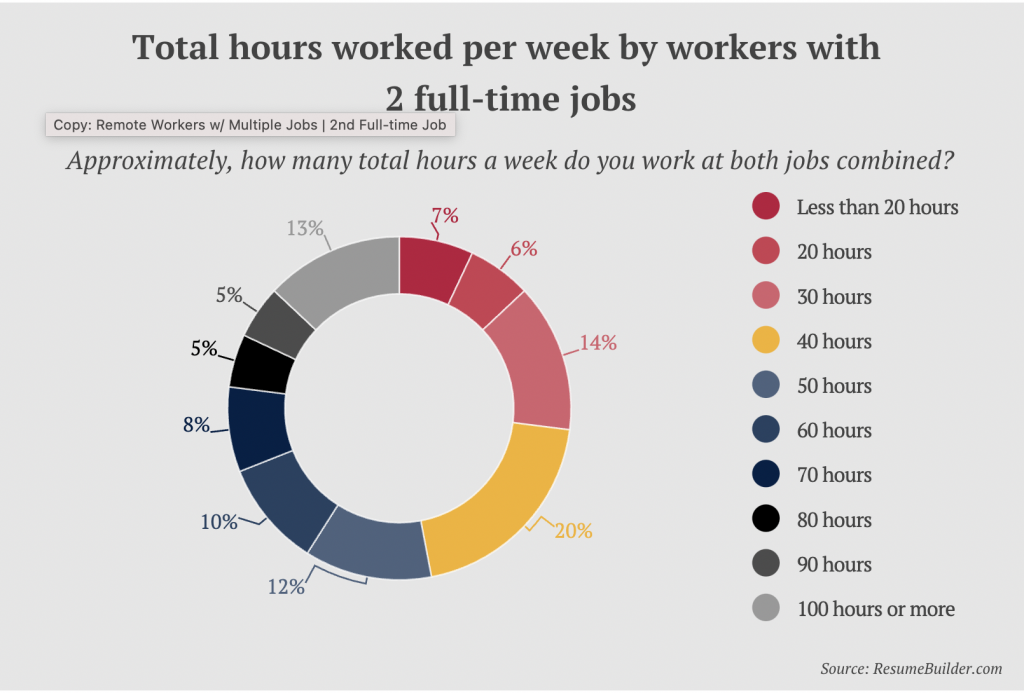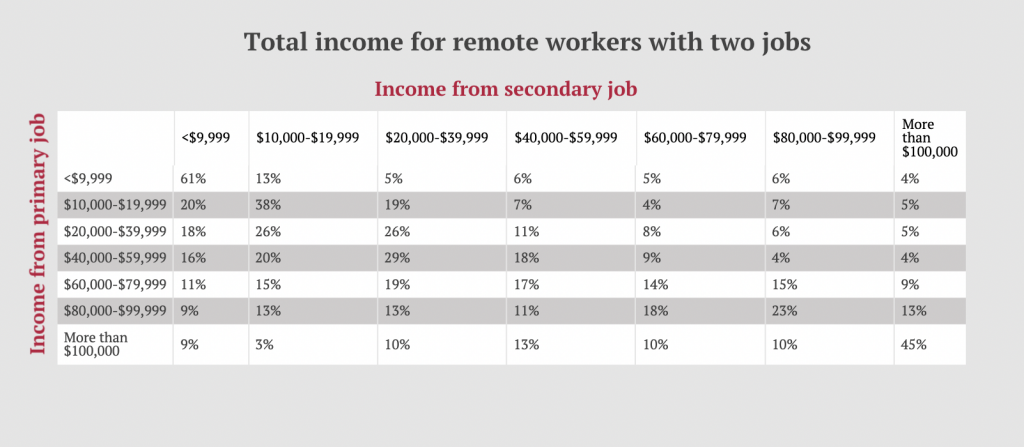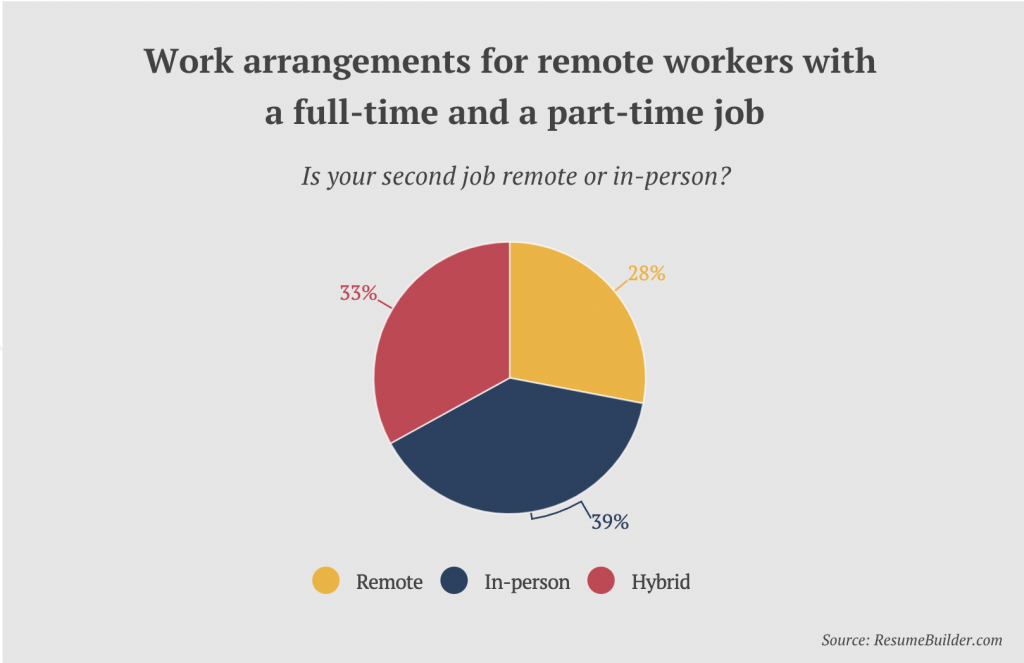A new study carried out by Resumebuilder.com has now revealed a potentially troubling reality about the rise of remote work. Namely that, according to the results of their study, a majority of remote workers have more than one job.
READ THE ENTIRE STUDY HERE
For the millions of Americans who work remotely, more free time and less oversight is commonplace. But while some may use this extra time to focus on health, family, or hobbies, according to a new survey, the majority of full-time remote workers are using this flexibility and freedom to work more.
In October, ResumeBuilder.com surveyed 1,250 full-time remote workers in the U.S. to gauge how many are juggling multiple jobs. The survey revealed that 69% of remote workers have either a full- or part-time side gig. Below is a closer look at how and why America’s remote workers are managing two jobs simultaneously.
According to the report, up to 37 percent of remote workers are working two full-time jobs, and 45 percent of these second full-time jobs are also remote:

READ THE ENTIRE STUDY HERE
In addition, a majority of those with two full-time jobs don’t work full-time hours:

However, it’s not all rosy for remote workers, as some are barely able to make ends meet in spite of sometimes working more than one job:

READ THE ENTIRE STUDY HERE
The report also found that a significant amount of remote workers also work a ‘side gig’ to make ends meet:

Men are also twice as likely to be working multiple jobs than women are:
Men are nearly twice as likely as women to work a 2nd full-time job, by a rate of 45% to 27%.
For men, the number one reason they are working two jobs is to have more spending money (53%), while women are most keen on using their second job to pay off debt (49%).
Eighty-two percent of men, and 70% of women are running their businesses as their second job.
Men and women feel the impact of working two jobs differently. Fifty-five percent of male respondents say having a second job makes them more productive, compared to 40% of women. Conversely, women are more than twice as likely as men to say working two jobs makes them less productive (18% compared to 7%).










